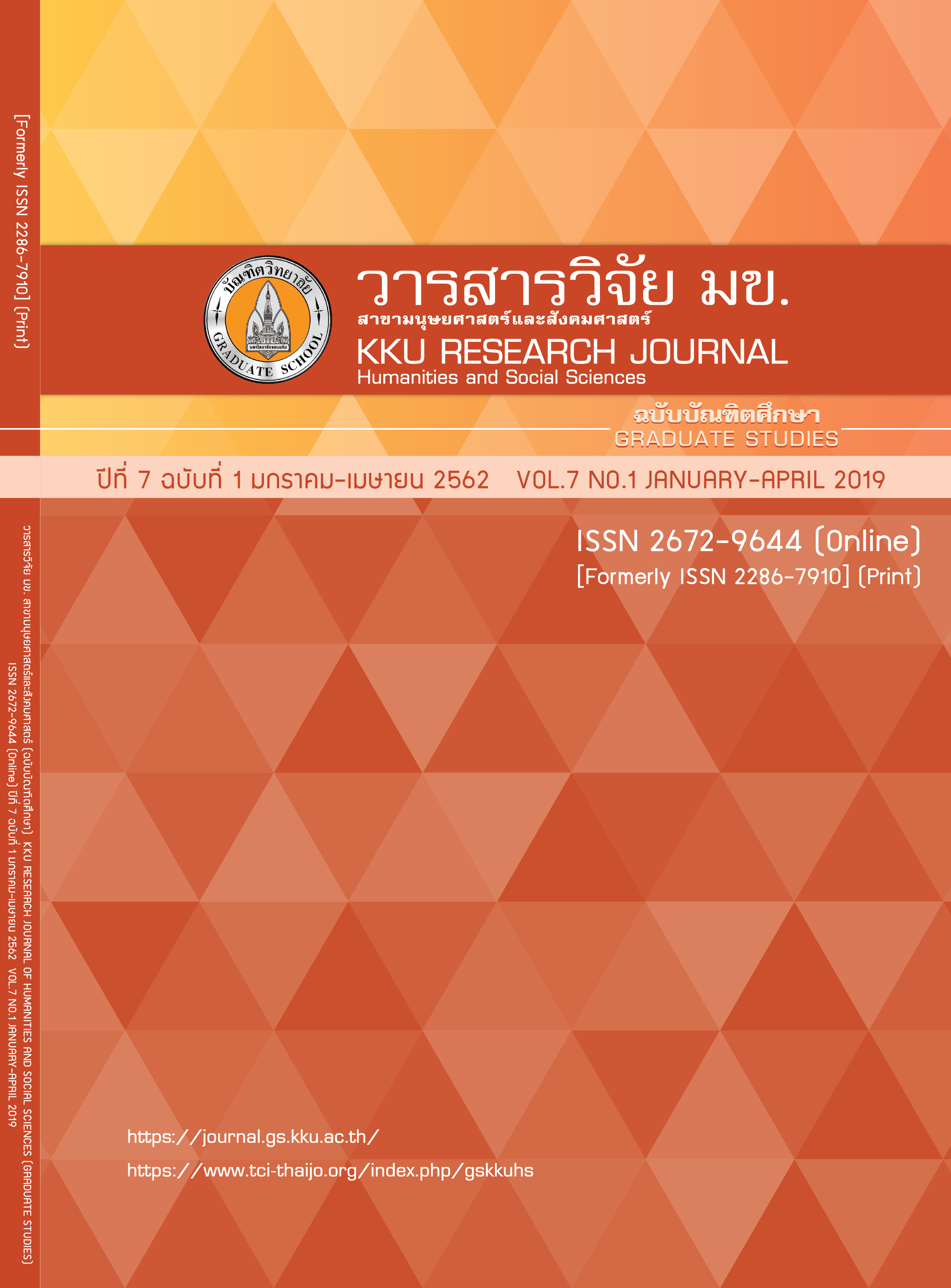ประสิทธิภาพของรูปแบบการสอนตามทฤษฎีการสร้างความรู้ ในการป้องกันโรคติดต่อของผู้ดูแลเด็กก่อนวัยเรียน กรุงเทพมหานคร
คำสำคัญ:
ทฤษฎีการสร้างความรู้, การป้องกันควบคุมโรคติดต่อ, ความสามารถของผู้ดูแลเด็กบทคัดย่อ
การศึกษาวิจัยครั้งนี้ มีวัตถุประสงค์เพื่อ 1) พัฒนาและประเมินประสิทธิภาพของรูปแบบการสอนตามทฤษฎีการสร้างความรู้ในการป้องกันโรคติดต่อของผู้ดูแลเด็กก่อนวัยเรียน และ 2) เปรียบเทียบความสามารถในการเรียนรู้ของผู้ดูแลเด็กที่เรียนด้วยรูปแบบการสอนตามทฤษฎีการสร้างความรู้กับรูปแบบการสอนปกติ การวิจัยนี้ เป็นการวิจัยและพัฒนา โดยใช้แบบแผนการวิจัยแบบกำหนดกลุ่มควบคุม ทดสอบก่อนและหลังเรียนต่อเนื่องตามช่วงเวลาที่กำหนด ผลการวิจัยพบว่า รูปแบบการสอนตามทฤษฎีการสร้างความรู้ในการป้องกันโรคติดต่อของผู้ดูแลเด็กก่อนวัยเรียน ได้กระบวนการเรียนการสอน 5 ขั้นตอน ที่เรียกว่า รูปแบบการเรียนการสอนแอลจี “ALGAE Model” ประกอบด้วย ขั้นการดึงดูดความสนใจ (Attraction: A) ขั้นเรียนรู้และฝึกปฏิบัติ (Learn and practice: L) ขั้นการให้แนวทาง การเรียนรู้ (Guide learning: G) ขั้นการนำไปใช้ (Application: A) และขั้นประเมินผล (Evaluation: E) และรูปแบบการสอนตามทฤษฎีการสร้างความรู้ ในการป้องกันโรคติดต่อของผู้ดูแลเด็กก่อนวัยเรียน มีค่าประสิทธิภาพเท่ากับ 80.88/82.75 เมื่อเทียบกับเกณฑ์ 80/80 ปรากฏว่าสูงกว่าเกณฑ์ที่กำหนดไว้ ความสามารถในการเรียนรู้ของผู้ดูแลเด็กที่เรียนด้วยรูปแบบการสอนตามทฤษฎี การสร้างความรู้กับรูปแบบการสอนปกติแตกต่างกันอย่างมีนัยสำคัญทางสถิติที่ระดับ 0.01 โดยคะแนนความสามารถในการเรียนรู้สูงกว่าผู้ดูแลเด็กที่เรียนด้วยรูปแบบการสอนปกติ ข้อเสนอแนะ การจัดหลักสูตรอบรมเกี่ยวกับการป้องกันควบคุมโรคติดต่อในศูนย์พัฒนาเด็กก่อนวัยเรียนแก่ผู้ดูแลเด็กที่ไม่มีพื้นฐานความรู้ทางด้านสาธารณสุขมาก่อน ควรจัดให้มีการสอนแบบรายบุคคลจะเกิดผลสัมฤทธิ์มากกว่าการสอนแบบบรรยายกลุ่มใหญ่
เอกสารอ้างอิง
Bangkok: Policy and Planning Division; 2007.
2. Bureau of Social Development. Pre-school Child Development Center, Bangkok 2015. Bangkok: Policy and
Planning Division; 2015.
3. Bureau of Infectious Diseases, Department of Disease Control, Ministry of Health. Guidelines for the
Prevention and Control of Communicable Diseases. Childcare. Bangkok: Office of National Buddhism; 2011.
4. Bureau of Emerging Infectious Diseases. Operational Guidelines for Foot and Mouth Disease and
Enterovirus 71 infection for medical and public health personnel in 2014. Bangkok: Veterans Administration
Under the Royal Patronage; 2014.
5. Department of Epidemiology Division of Communicable Disease Control, Health Department of Bangkok.
Journal of Surveillance Reports Disease. 2016;25(12),3.
6. Bureau of Health, Health Department of Bangkok. Journal of Surveillance Reports Disease. 2014; 23(10):
5-10.
7. Kevin K. Psychology and Adult Learning. London: Rutledge; 2008.
8. Kasem C. Environmental Education. Bangkok : Office of National Buddhism; 2003.
9. Mellado V. Contributions from the Philosophy of Science to the Education of Science
Teachers. Science & Education 2006;15(5), 419-445.




